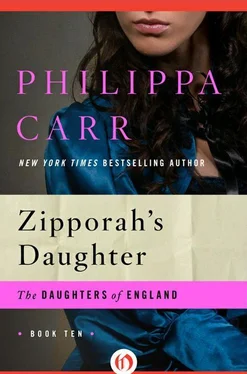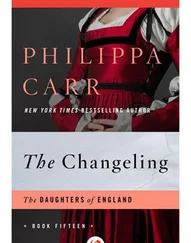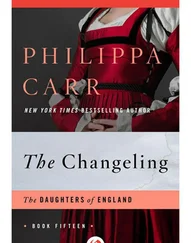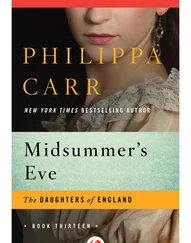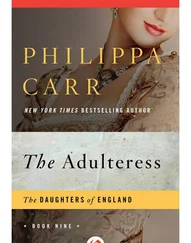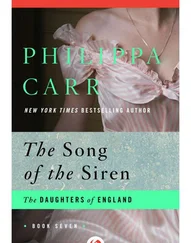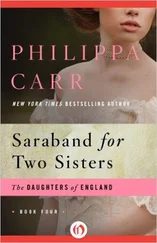Philippa Carr - Zipporah's Daughter
Здесь есть возможность читать онлайн «Philippa Carr - Zipporah's Daughter» весь текст электронной книги совершенно бесплатно (целиком полную версию без сокращений). В некоторых случаях можно слушать аудио, скачать через торрент в формате fb2 и присутствует краткое содержание. Жанр: Исторические любовные романы, на английском языке. Описание произведения, (предисловие) а так же отзывы посетителей доступны на портале библиотеки ЛибКат.
- Название:Zipporah's Daughter
- Автор:
- Жанр:
- Год:неизвестен
- ISBN:нет данных
- Рейтинг книги:4 / 5. Голосов: 1
-
Избранное:Добавить в избранное
- Отзывы:
-
Ваша оценка:
- 80
- 1
- 2
- 3
- 4
- 5
Zipporah's Daughter: краткое содержание, описание и аннотация
Предлагаем к чтению аннотацию, описание, краткое содержание или предисловие (зависит от того, что написал сам автор книги «Zipporah's Daughter»). Если вы не нашли необходимую информацию о книге — напишите в комментариях, мы постараемся отыскать её.
Zipporah's Daughter — читать онлайн бесплатно полную книгу (весь текст) целиком
Ниже представлен текст книги, разбитый по страницам. Система сохранения места последней прочитанной страницы, позволяет с удобством читать онлайн бесплатно книгу «Zipporah's Daughter», без необходимости каждый раз заново искать на чём Вы остановились. Поставьте закладку, и сможете в любой момент перейти на страницу, на которой закончили чтение.
Интервал:
Закладка:
‘Yes,’ she said, ‘I see it, but it doesn’t alter anything.’
‘I shall never forget the way they looked at Sophie and Armand. True aristocrats … legitimately born aristocrats … not like us, Lisette … the bastards. But they took both of us. Why? Because we are young and healthy, because they envy us. The foundation of this revolution is built on envy. Is its purpose, do you think, to make France a better, happier country? No. It is not that at all. I saw it clearly tonight. It is an attempt by people who have not, to take from those who have those luxuries which they want for themselves. When they have them they will be as selfish and careless of others as the rich have been in the past. It is not a better country that these people are destroying for. It is to turn it round so that those who did not have, now have, and those who had, now have not.’
Lisette was silent and I went on: ‘Is that not so with you, Lisette? You are a true daughter of the revolution. You were envious. Admit it. You have let envy colour your whole life. You have built up a picture that was based on falsehood from the beginning. I can see how it came about. It was a natural inference. Then you were Charles’s mistress and that was gratifying because he was going to marry Sophie. Did you deliberately leave the flower in his apartment so that she could suspect me? You always liked to create a drama, didn’t you? You must have been very pleased to have been his mistress while he was engaged to Sophie. But when there was a child … ’
Lisette burst out: ‘He should have married me. I thought he would. I thought he would make the Comte admit that I was his daughter. Why shouldn’t he have done so? You married Charles.’
‘I was the Comte’s daughter, Lisette.’
‘I was too. I was … I was … ’
I sighed. It was no use talking to her. She would not let go of her obsession, although she knew in her heart that what I and Tante Berthe had told her was true. She must go on believing; and I could see that belief had been her lifeline. She clung to it. She was not going to let it go. Even in the face of the bloodthirsty mob she stood up and said: ‘I am an aristocrat.’
Oh, what a foolish woman she was!
But was I any wiser? I had prevaricated. I had been afraid. I had yearned for Dickon—how far away dear Eversleigh seemed now!—and I had refused to go to him. I had allowed my fears and my suspicions to grow. I had always known that there was none of the saint about Dickon. Far from it. But it was the Dickon he was whom I had wanted; and something perverse within me had refused to let me go to him, to take him for what he was … which is what one must always do with others. One cannot mould them; one loves for what a person is … faults and all, and that was how I had loved Dickon.
I tried to think of him now. Would he have returned to Eversleigh? What would he have said when he found that I had gone?
I thanked God that my father had died before this happened. I thanked God, too, that the children were in England, saved from this holocaust.
The noise had stopped. I went to the window and looked out. I saw him clearly riding through the crowd. Léon Blanchard! I wondered if he was coming to the mairie. Perhaps he would say what was to be done and order them to release Lisette.
‘Lisette,’ I cried. ‘Look! It is Léon Blanchard.’
She was beside me. ‘He has come for me,’ she cried. ‘Léon! Léon!’ she shouted; but he could not hear, nor did he look towards the windows of the mairie.
‘I must get down to him,’ she said. ‘I must.’
She ran to the door. It was locked. She came back to the window. She battered at it with her hands. I saw the blood on the plum-coloured velvet. She had broken through and stood on the balcony. I heard her agonized cry: ‘Léon! Léon! I am here, Léon. Save me from this rabble.’
I couldn’t see Léon Blanchard now. The crowd was staring up at the balcony. I saw Lisette leap and she was gone.
There was a hushed silence in the crowd. The mob seemed to stampede forward. There was deafening noise and screaming. The torches threw a grisly light on the scene. I saw a bloody hand come up and in its grasp was a diamond necklace.
I waited at the window.
I was there when they carried away a broken body.
It was quieter down below. Sickened by what I had seen, I wanted to lie down on that hard floor and drift into oblivion. I wanted to shut out the horror of it all. I felt that if ever I should escape from this peril I should be haunted all my life by the memory of Lisette with the fanatical gleam in her eyes. Life had become a nightmare and I believed that the end of it was very near.
I was cramped lying on the floor. I felt desperately alone. A great urge came over me to weep for Lisette. All those years of resentment … and she had been Charles’s mistress … Had she continued to be when I was in England and she was there with him alone? Was it going on them? It didn’t matter now. Why wonder about it? Soon they would come for me.
I went to the window and looked out. My eyes went to the lamp-post with its faint light which showed me the dark liquid running over the cobbles. I saw that it came from the wine shop into which the mob had broken. Some men were squatting on the cobbles scooping up the puddles with their hands and holding their hands to their lips. I heard a woman start to sing in a high-pitched, quavering voice and a man brusquely and crudely telling her to shut up.
Many of them were drunk. Some were propped up against walls. But they were keeping their vigil at the mairie. They had had one spectacle tonight and they were waiting in anticipation for another. The signal would come and they would storm the mairie.
I could not bear to look at them. I sat down and leaned against the wall with my eyes closed. If only I could sleep away the time until they came for me …
I wondered how long it took for death to come.
‘Quickly, please God,’ I prayed.
The door opened quietly. A man came in. I started to my feet, a sick feeling of horror enveloping me. The moment had come.
It was the Mayor who faced me.
He said: ‘You are to leave here.’
‘Leave here … ’
He put his fingers to his lips. ‘Don’t speak. Obey orders. The mob is quieter now but still in an ugly mood. I don’t want to have to tell them that you are being taken to a prison outside the town. They would not allow you to go. They are determined to hang you. Here … follow me.’
‘But where … where am I going?’
‘I told you to be silent. If the mob get wind that you are leaving they will tear you to pieces. They are bent on seeing the end of Aubigné.’
I followed him down the stairs. We were in a courtyard at the back of the mairie where a coach was waiting. It was shabby and enclosed. A bearded driver, wearing a coat and muffled up about the neck in spite of the weather, was seated in the driving seat. He was holding a whip in his right hand and did not turn as I came out of the mairie.
‘Get in,’ said the Mayor.
‘I want to know where you are taking me.’
I was given a rough push. ‘Be silent,’ hissed the Mayor. ‘Do you want to bring the mob down on you?’
I was pushed inside the coach and the door shut on me. The Mayor lifted his hand and the coach jolted forward.
We had to come round to the front of the mairie and as the coach rattled into the square a cry went up.
‘A carriage? Who rides in a carriage?’
The driver whipped up the horses. I heard the shouts of rage and guessed that the mob was trying to stop the coach.
I lurched from side to side. The driver drove like a madman.
Читать дальшеИнтервал:
Закладка:
Похожие книги на «Zipporah's Daughter»
Представляем Вашему вниманию похожие книги на «Zipporah's Daughter» списком для выбора. Мы отобрали схожую по названию и смыслу литературу в надежде предоставить читателям больше вариантов отыскать новые, интересные, ещё непрочитанные произведения.
Обсуждение, отзывы о книге «Zipporah's Daughter» и просто собственные мнения читателей. Оставьте ваши комментарии, напишите, что Вы думаете о произведении, его смысле или главных героях. Укажите что конкретно понравилось, а что нет, и почему Вы так считаете.
